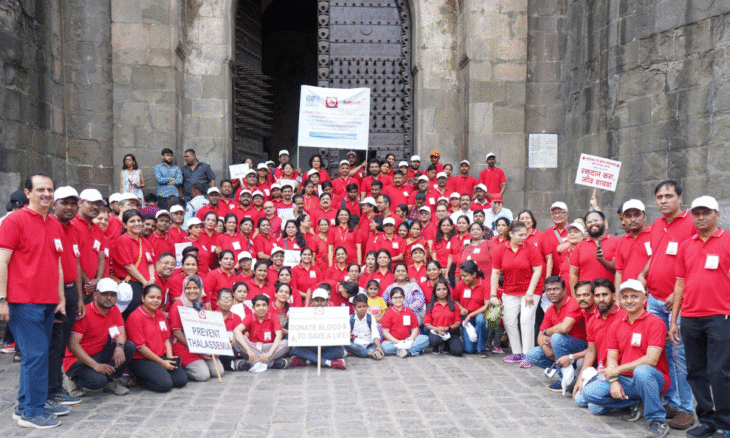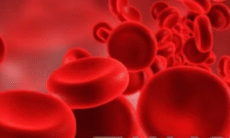Pune: In a landmark initiative to promote awareness on World Thalassemia Day, the blood bank of Sahyadri Hospitals, in collaboration with the Indian Society of Blood Transfusion and Immunohematology (ISBTI) and the Thalassemia Society Pune Chapter (TSPC), organised Pune’s first Thalassemia awareness rally.
The thalassemia awareness rally aimed to educate the public about the serious implications of this genetic blood disorder and the importance of prevention and early diagnosis.
India sees the birth of approximately 10,000 to 12,000 children with thalassemia each year, making it one of the most affected countries globally.
Despite this, widespread awareness remains lacking. Thalassemia affects patients’ physical, mental, social, and economic wellbeing, underlining the need for community education and public health initiatives. The thalassemia awareness rally was a part of the nationwide campaign for a Thalassemia-Free India by 2035.
Thalassemia awareness rally route
Starting from Sahyadri Super Speciality Hospital in Deccan Gymkhana at 7:30 AM, the rally proceeded through key city routes including Lakdi Pul, Tilak Road, and Bajirao Road, concluding at Shaniwar Wada. It saw participation from thalassemia patients, their families, doctors, medical staff, and the general public.
Key dignitaries included:
- Girish Hukare, Joint Commissioner, Food and Drug Administration (FDA), Pune
- Dr Sunil Rao, COO and Medical Director, Sahyadri Hospitals
- Dr Neeta Munshi, President, TSPC
- Dr Dilip Wani, President, ISBTI
- Dr Purnima Rao, Sr Consultant, Sahyadri Blood Bank and Secretary, ISBTI Maharashtra Chapter
- Dr Smita Joshi, HOD, Sahyadri Blood Bank and Treasurer, ISBTI Maharashtra Chapter
Renowned RJ Sangram Khopade from Big FM also supported the event
In his address, Girish Hukare emphasised that prevention is the only viable solution for thalassemia. “The government offers free blood and essential medicines to thalassemia patients. It is vital for families to utilise these resources and spread awareness to eliminate this disease,” he stated.
Dr. Sunil Rao elaborated on the genetic nature of thalassemia, noting that even mildly symptomatic parents can have children with severe forms of the disorder. “Such children often require a blood transfusion every 21 days. Our blood bank has proudly served these patients for over 15 years,” he said.
Dr. Neeta Munshi revealed that Pune currently has over 1,000 registered thalassemia patients. “Our mission is to make Pune thalassemia-free by 2030 and the entire country by 2035. Preventive genetic testing before marriage or childbearing is essential to achieve this,” she explained.
Dr. Dilip Wani called for stronger collaboration between healthcare providers, blood banks, and community organisations. Dr. Purnima Rao underscored the urgent need for regular blood donation drives, especially to support economically disadvantaged patients.
The Thalassemia awareness rally event concluded with a collective call to action to raise thalassemia awareness across communities. Sahyadri Hospitals also announced the launch of ongoing Continuous Medical Education (CME) programmes for healthcare professionals to bolster efforts toward a Thalassemia-Free India.





